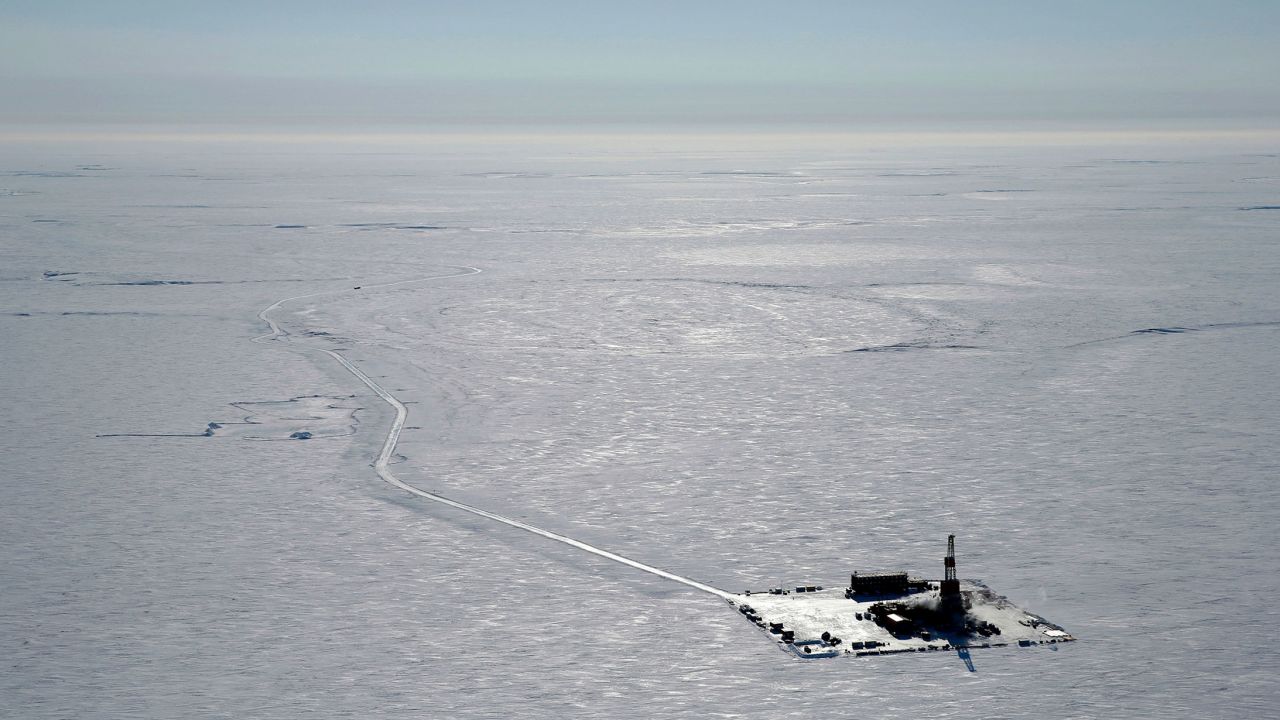(Trends Wide) — The Joe Biden government approved the massive Willow oil drilling project in Alaska, angering climate advocates and setting the stage for a legal challenge.
The Willow project is a decades-long oil drilling initiative in the federally owned National Petroleum Reserve. The area where the project is planned is home to up to 600 million barrels of oil, although that oil would take years to reach the market as the project is not yet being built.
According to government estimates, the project would generate enough oil to release 9.2 million metric tons a year of carbon pollution, which would be the equivalent of adding 2 million gasoline-powered cars to the roads.
The approval is a victory for Alaska’s bipartisan congressional delegation and for a coalition of Alaska Native tribes and groups that hailed the drilling project as a much-needed new source of income and employment for the remote region.
But it’s a blow to environmental groups and Alaska Natives who opposed Willow and argued that the project would hurt the president’s ambitious climate goals and pose health and environmental risks.
Activism against it has grown online, where there are more than a million letters written to the White House protesting the project and a Change.org petition with millions of signatures.
Environmental advocates are expected to challenge the project in court.
Earthjustice, an environmental advocacy group, has been building a case against the project and intends to argue that the Biden administration’s authority to protect Alaska public land resources includes taking steps to reduce pollution. by carbon that warms the planet, to which, ultimately, the Willow Project would be added.
The president of Earthjustice, Abigail Dillen, criticized the government’s decision on Monday.
“We are too far along in the climate crisis to pass massive oil and gas projects that directly undermine the new clean economy that the Biden administration has promised to advance,” Dillen said. “We know that President Biden understands the existing climate threat, but he is passing a bill that derails his own climate goals.”
Willow Oil Project Details
The project was approved with three drilling rigs instead of two. In recent weeks, the Biden administration had considered reducing the number of approved drilling rigs to two and increasing nature conservation measures to try to assuage concerns from climate and environmental groups about the project.
But ConocoPhillips and Alaska’s bipartisan congressional delegation lobbied the Biden White House and the Interior Department for months to approve three drilling rigs, arguing that the project would not be economically viable with two.
Ultimately, the government felt it was legally constrained and had few options to cancel or significantly scale back the project, which was initially approved by the Trump administration. The administration determined that, legally, the courts would not have allowed them to reject the project outright, two government sources familiar with the approval told Trends Wide.
Many oil extraction leases at the site were decades long, which the government considered gave ConocoPhillips certain existing legal rights. Reducing the drilling rigs to two would have allowed the company to drill about 70% of the oil it was initially seeking.
Still, the final scope of the project will encompass 68,000 fewer acres than ConocoPhillips initially intended, according to the sources.
Trends Wide has contacted ConocoPhillips for comment.

Exploration drilling camp at the proposed Willow oil project site on the North Slope of Alaska. (Credit: ConocoPhillips/AP)
The “firewall” provided by the Government
Biden is also expected to announce new protections for Alaska’s federal lands and waters Monday, along with Willow’s approval.
Biden will declare the entire US Arctic Ocean a no-go zone for future oil and gas leases and announce new rules to protect more than 13 million acres of the Alaska National Petroleum Reserve from drilling. In all, the government will protect up to 16 million acres from future fossil fuel leases.
Protection will extend to Teshekpuk Lake, Utukok Uplands, Colville River, Kasegaluk Lagoon and Peard Bay special areas, locations that are important habitats for brown bears, polar bears, caribou and migratory birds. On Sunday, a government official said the administration views the new measures as a “firewall” against future fossil fuel leasing and expansion of existing projects on the northern slope.
Disappointed reactions
Environmental groups have lashed out at the Biden administration for its approval of Willow, saying that increased protections in other Arctic regions will not undo the damage the project will cause.
Tiernan Sittenfeld, senior vice president of government affairs for the League of Conservation Voters, said the league is “extremely disappointed” by the decision, calling the bill “dangerous” and “dirty.”
“This is in direct conflict with the Biden-Harris Administration’s goals to cut climate pollution in half by 2030, and now it is even more important that they redouble executive action that maximizes climate and conservation progress,” Sittenfeld said in a statement. “The new protections announced for the threatened Arctic are important, but they don’t make up for Willow’s endorsement.”
Lena Moffitt, executive director of Evergreen Action, which advocates for strong climate change policies, called the passage an “unacceptable departure from President Biden’s promises to the American people on climate and environmental justice.”
The Alaska Wilderness League, which works to protect Alaska’s natural areas from fossil fuel drilling and industry, said it was “deeply disappointed” by the passage.
“This is the wrong move for our climate future, to protect biodiversity, and to honor the frontline communities that have spoken out against this project,” said Kristen Miller, executive director of the Alaska Wilderness League.
Sen. Martin Heinrich, D-NM, called the passage “disappointing.”
“The western Arctic is one of the last great wilderness landscapes on the planet,” Heinrich said in a statement. “Industrial development in this virgin landscape will not age well.”



